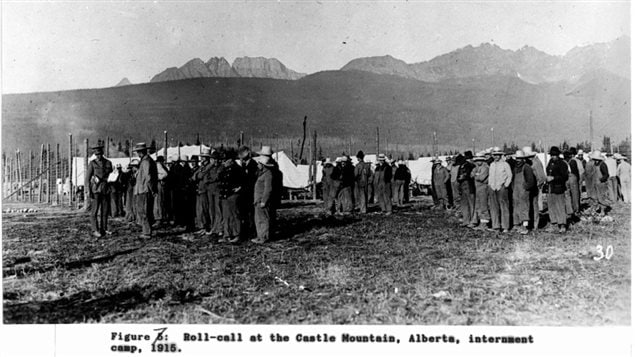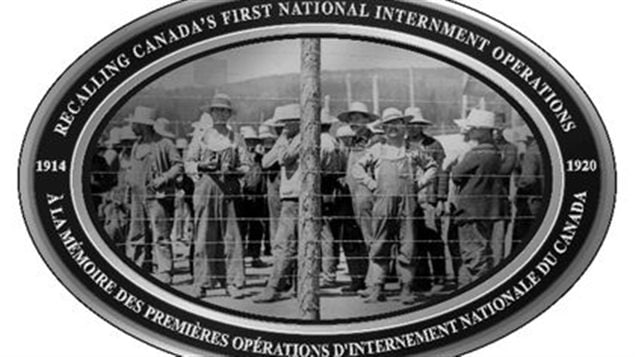100 plaques in a 100 places across Canada will be inaugurated on August 22nd, commemorating a dark chapter in Canada’s history, one that remained shrouded in secrecy and fear for many years.
ListenOn August 22nd, 1914, the War Measures Act was passed in Ottawa. It allowed the internment of people decreed “enemy aliens”. Canada, along with Britain, was at war with what was then the Austro-Hungarian empire. As a result, 8,579 people, about half of them Ukrainians, the rest members of the smaller German, Serb, Croatian, Hungarian, Armenian, Alevi Kurds, and Turkish communities among others, in Canada at the time, were taken to 24 internment camps across the country. Some of the camps included women and children.

Professor Lubomyr Luciuk is a member of the Ukrainian Canadian Civil Liberties Association and head of Project Cto, the campaign for these 100 memorial plaques, While he has no direct family connection to the internment, he says he was moved to act on behalf of the people he says were stripped of the little they owned, and the many who were forced into heavy labour, including building the roads and other infrastructure in Banff National Park.
A wave of reconciliation
Created in 2008, the First World War Internment Recognition Fund,worked with the Ukranian Civil Liberties Association and other organizations to create this project. Lubomyr Luciuk says it is intended to remind people that our basic human rights and civil liberties are fragile in times of crisis.
Memory not money
Professor Lubomyr Luciuk, who grew up and was educated in Kingston, Ontario, said he came across this Canadian experience by accident, in a conversation with Nick Sakaliuk, an elderly Ukrainian man. And as he began to research the stories, Luciuk met Mary Manko Haskett of Montreal. She was 6 years-old when her family was shipped north to what was then known as Spirit Lake, Quebec. Her two-and-a-half year-old sister, Nelly, died at the camp. But when Luciuk asked Mary how she wanted the experience honoured, she said it was ‘memory not money’ that mattered.







For reasons beyond our control, and for an undetermined period of time, our comment section is now closed. However, our social networks remain open to your contributions.